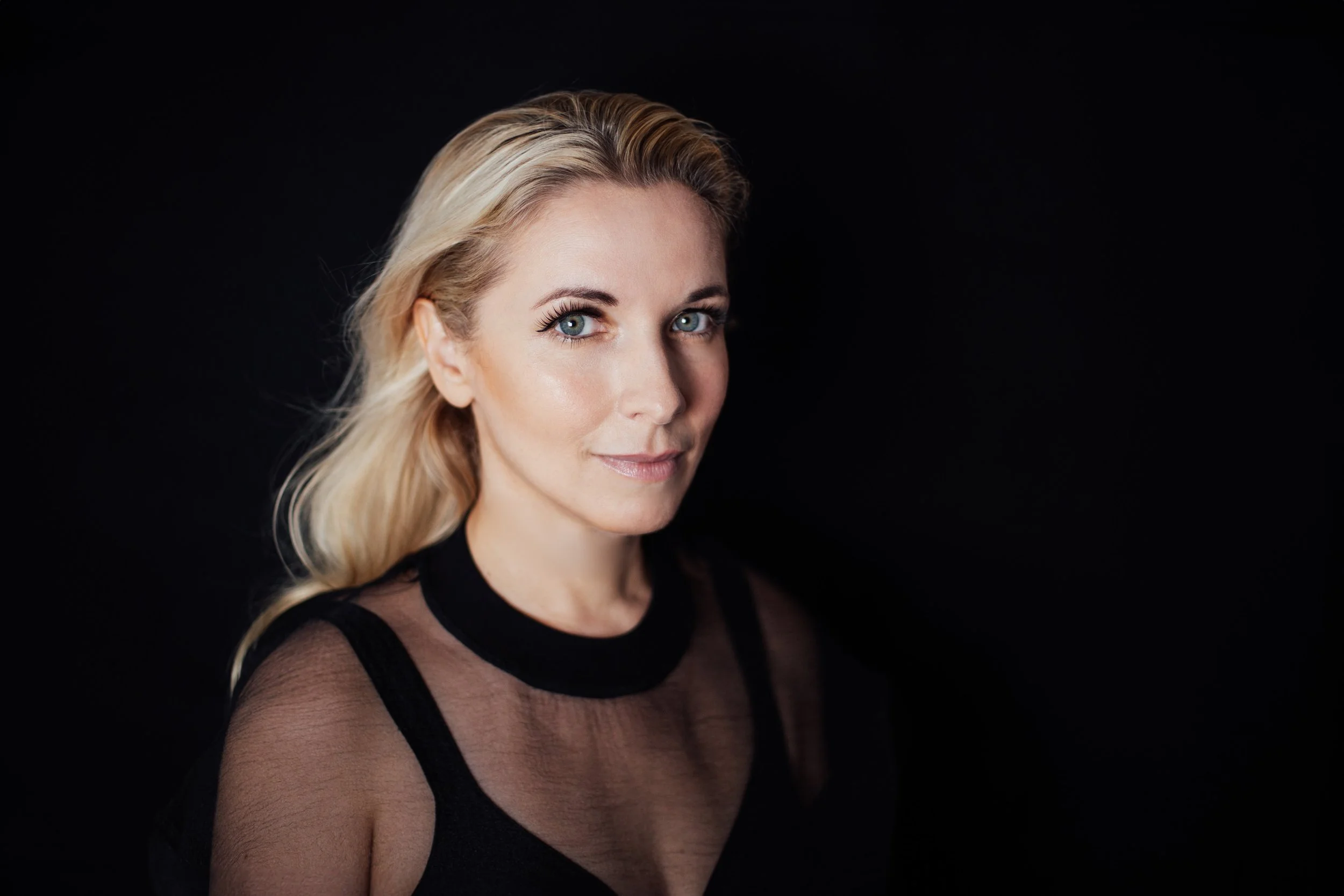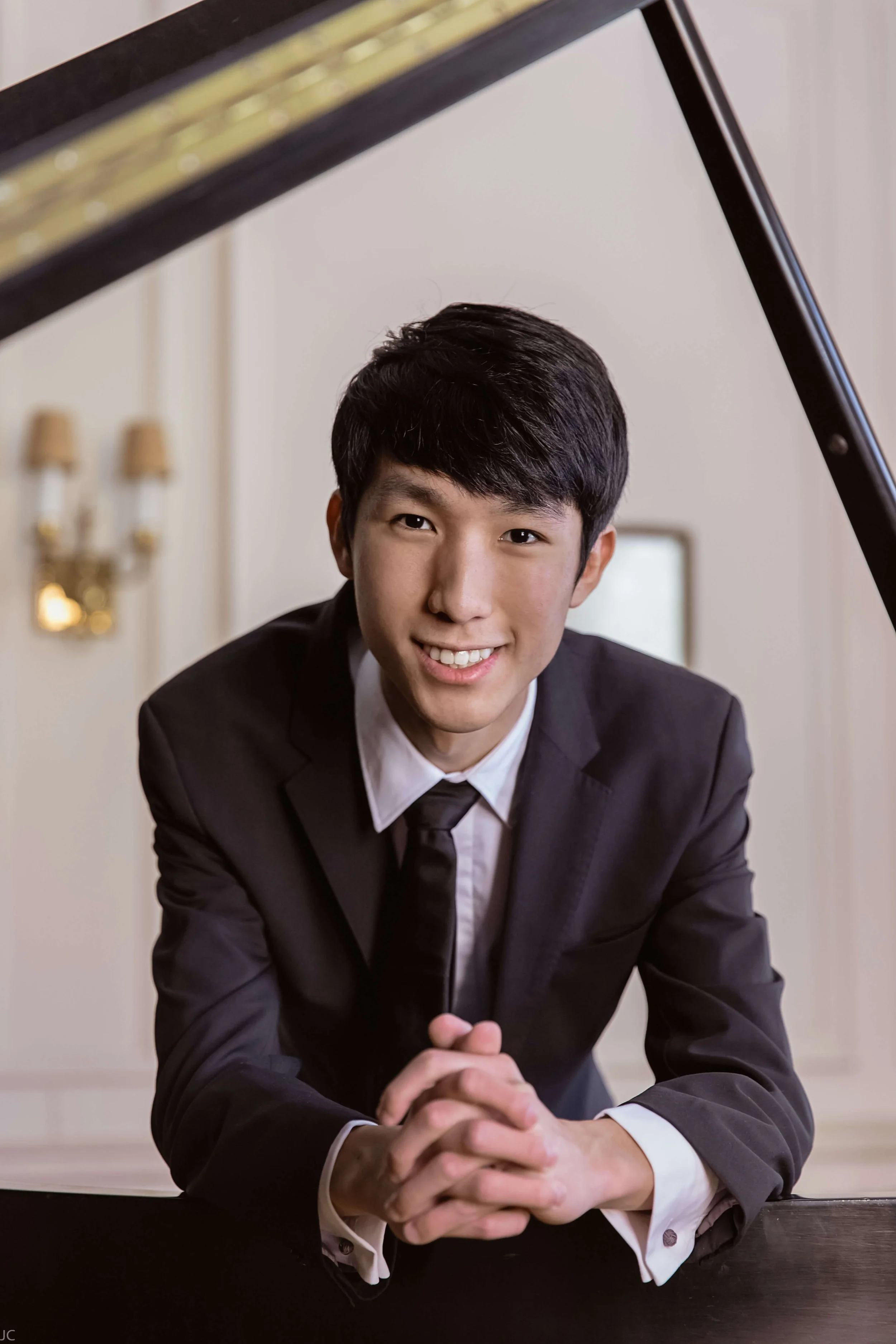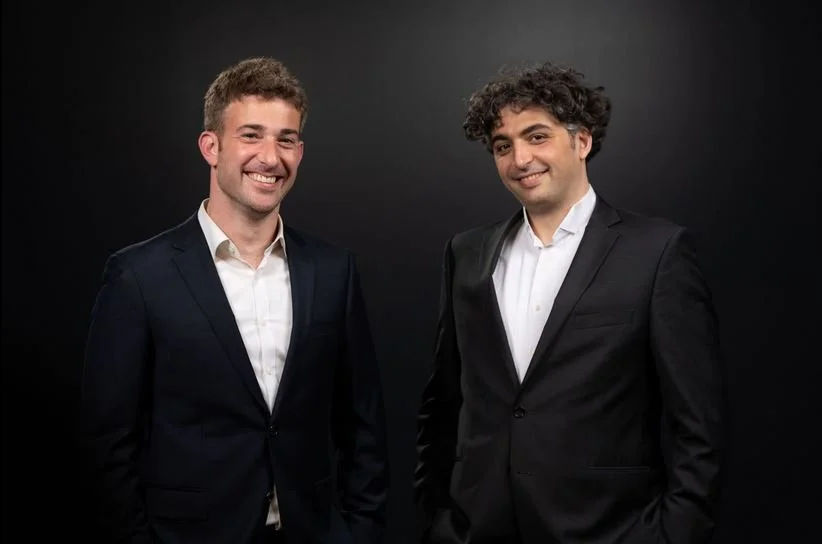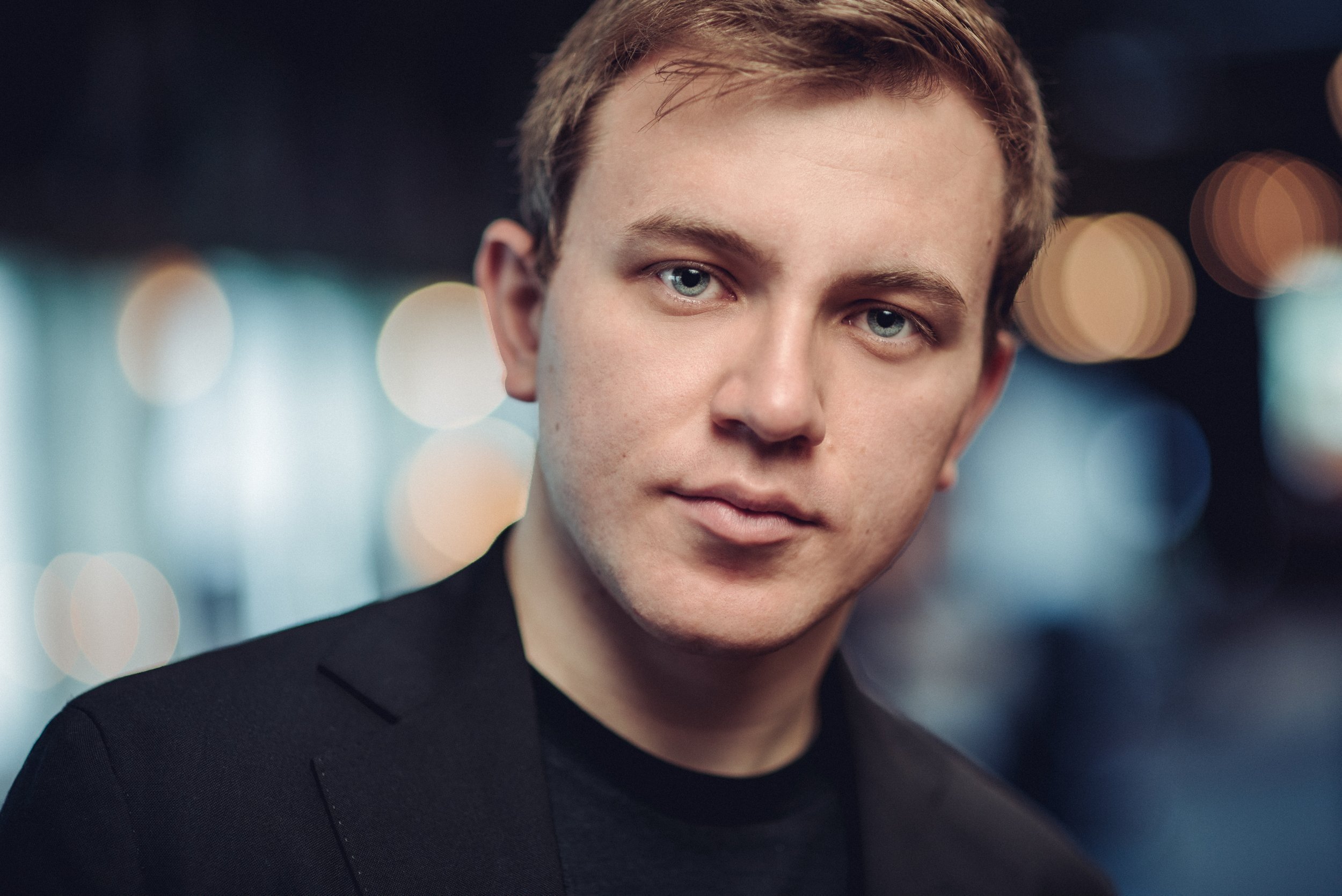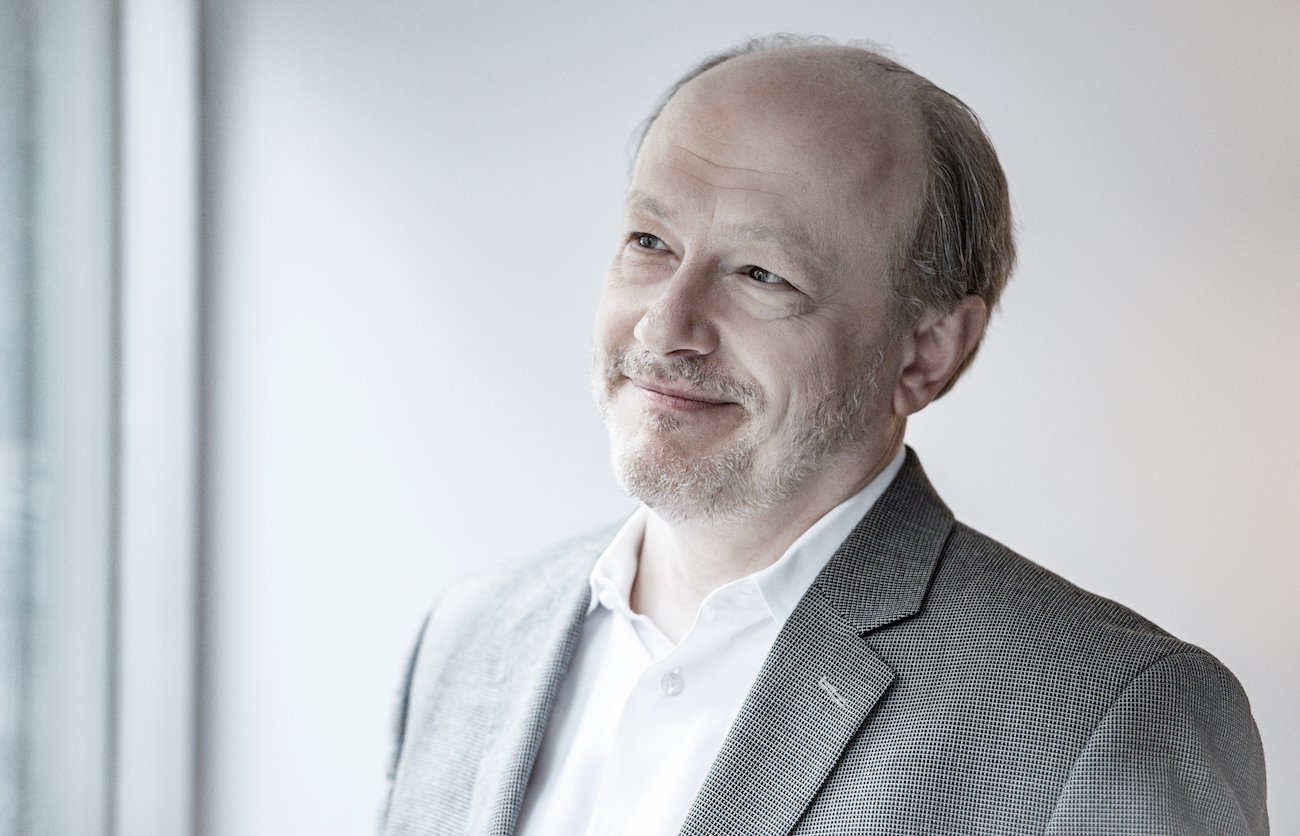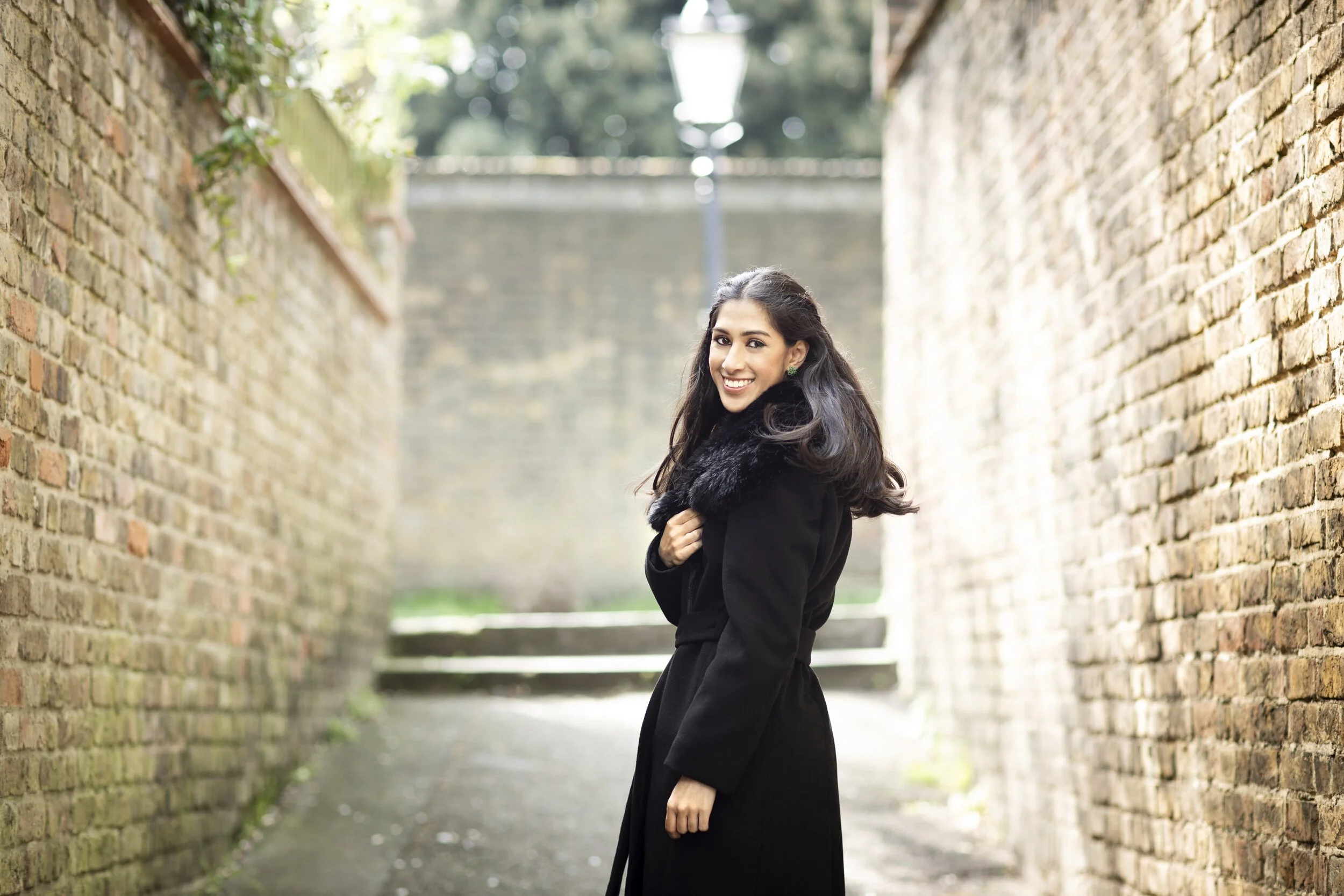NOTES ON THE PROGRAM
Tamara Stefanovich: Notes on the Program
There is a subtle chemistry or sophistry or deep wisdom or something to crafting a compelling concert program. A recitalist, ensemble, or orchestra director must sort out various elements that will result in a whole that is deeply pleasing to the audience. Those include getting a good balance of tempi, moments of both excitement and repose, respect for time-honored repertory but also modern and contemporary music, and the list goes on. To my eyes and ears, Tamara Stefanovich is a wizard in this realm.
Pavel Kolesniknov & Samson Tsoy: Notes on the Program
Given that a Pew Research survey in 2024 indicated that 70% of Americans don’t make New Year’s resolutions, we can safely surmise that you’re here today because you truly love the piano, not because you resolved to attend more live music in 2026. (If that’s your resolution, we’re overjoyed that you’re here, though, and hope you don’t become one of the 80% who fail to stick to their plans!) Interestingly, for the 30% of people who do make resolutions, after the obvious culprits of losing weight, exercising more and drinking less, the most common New Year’s resolutions include learning a new skill, reducing stress and spending more time with loved ones. Believe it or not: For all three of those, you’ve come to the right place today, intentionally or not!
Eric Lu: Notes on the Program
Ta-da! It’s November and we are at the third of the three fall recitals for this new season of PPI! November can seem like the wet blanket it literally often is: short days stealing away our early-fall joy, dark mornings, wet commutes. But, there are several bright spots, too – Thanksgiving with its comforting cuisine, stores smelling like pumpkin spice and decorated in autumnal colors, musical programs on offer all around our city.
Boris Giltburg: Notes on the Program
The tagline for today’s concert, “a convergence of heart and mind,” comes at the perfect time of the year. As we’re heading into the fall here in Oregon, a very poignant mix of reflection and introspection collide with a striking display of natural splendor, leaving us in a space where everything feels somehow connected. Maybe because on a certain level, it is. Buddhism even has a word for it: “citta”, or heart-mind. If you struggle with attaining this equilibrium, sometimes reached through meditation, yoga or writing morning pages, you have come to the right place. Let’s align your thoughts, feelings, values and intuition through some of the most marvelous music ever written, being played by one of the most soulful human beings ever to grace our stage.
Evren Ozel: Notes on the Program
The current era forces us to think anew about the value of human thought and talent. Given that we could already have capitulated and given ChatGPT a stab at program note writing and creating editorial content, if not quite hire a bot to come play a recital, it still amazes, inspires and thrills us to dwell on the inimitable genius of timeless music and consummate musicianship. Statistics on the realities of being a concert pianist today are sobering (and take just seconds to retrieve with AI): While there are at least 74,000 “professional pianists” out there, fewer than 1% end up at the very top, making the job at least as stressful and precarious as that of a professional athlete. But this still doesn’t pierce to the heart of why we’re all sitting in this hall, eagerly awaiting the appearance of a phenomenally talented human being. We’ve watched Evren excel at The Cliburn, we’ve listened to the pieces he’s chosen to program today, and we can declare without a doubt that no machine can replicate the sheer human spirit that we’ll experience today. The thoughtful pairing of works, the meticulous combination of extreme physicality and intellect, the immediacy and singularity of this recital on this day can only be captured in our tagline for Evren’s performance: Daring, intimate spontaneity.
Angela Hewitt: Notes on the Program
Balance, proportion, scale, clarity, good taste, evident form, ornamentation evolved from content -- all of these descriptors of the baroque and classical periods are matters that too often seem lacking in contemporary art and music. Of course, romantic, modern, and contemporary music have wonderful, other devices and affekts, but many classical music lovers, and anyone for that matter, at least from time to time, long for that earlier aesthetic. I am among them, although I treasure so much music from after their period up through the present day.
Ilya Yakushev: Notes on the Program
“A phenomenon like Mozart remains an inexplicable thing.” – Johann Wolfgang von Goethe.
Opening a recital with somber arpeggios in a minor key, as our recitalist does today, is a brave thing. Will the audience be intrigued emotionally, wondering what will happen in the ensuing measures, or will they just get frowny? So, good for Ilya for taking a risk.
Indeed, in Mozart’s D minor Fantasy, there is such a whirlwind of musical emotions within its mere five and a half minutes, that the listener can be both thrilled and challenged quite promptly. There are many composers, too, who have used silences to heighten an effect in or between phrases, but few so dramatically as Mozart has in this work.
Rodolfo Leone: Notes on the Program
Schubert’s Impromptus have become a staple of the piano repertoire, praised for their lyrical beauty, complex structure, and expressive depth. They are emblematic of Schubert's mature style, characterized by a combination of directness and intimacy of expression, poetic sensitivity, and structural control and grandeur. They also contributed to the evolution of the genre of the short piano piece, influencing later Romantic composers.
Clayton Stephenson: Notes on the Program
In the three hundred-plus years since its composition, there are few instruments for which Bach’s Chaconne in D minor has not been arranged. Originally intended for the solo violin, there have since been saxophone, organ, marimba and guitar transcriptions, orchestral arrangements, a transcription for violin and four voices, and not one but two piano transcriptions for only the left hand. Whichever version you’re familiar with or used to prefer … I’m fairly confident that after today’s performance, Busoni’s piano transcription will be near the top of your list. To my ears, and I hope to yours, there is something about his lush, sensuous harmonization that bores straight to the heart of Bach and amplifies its essence more acutely than a new set of B&W speakers.
Duo Amal: Notes on the Program
There is a profound satisfaction, I think, to be had in a recital of duets and two-piano pieces, something that PPI offers every now and then. In today’s program, we get to hear some of the best repertory from those two genres. In the proceedings we get to reflect on a time when music was available to anyone only in live performance (Schubert) and to explore modern music with many sources of inspiration (all the others.)
Tetiana Shafran: Notes on the Program
Readers of these notes hardly have need of a reminder that all “great” music came about as the result of a composer’s most ardent, urgent response to inspiration, the whole of it tempered necessarily by hard study, obedience to certain rules of a particular tradition and pedagogy, and devotion to both emotional release and getting it all down on paper! Too often, as well, composers and performers have had to struggle with exceptional challenges in their personal and/or compositional lives, but, amazingly, still came through with music of great power. Stories about exactly that abound in music history.
Eric Lu: Notes on the Program
What do all the pieces on Eric Lu’s program have in common? Like the young man at the keyboard, the composers of these great works were (relatively) young people: Although Bach lived to the ripe old age of 65, he was only 17 when he composed his soulful Capriccio on the Departure of a Beloved Brother, BWV 992. Schubert composed his famous Impromptus at age 30; Mendelssohn wrote his 48 “Songs without words” at various times during his life – but he died well before his 40th birthday, as did the poetic genius Chopin. An “old soul”, the internet will tell you, is “someone who resonates deeply with the past and has a strong sense of wisdom beyond his years. One who feels displaced from mainstream society. One who values and recognizes the depth of even the littlest of things.” Does this also describe the composers listed above? To a T! Does it beg for a deeper discussion of music as a timeless, age-defying power? Most definitely!
Michelle Cann: Notes on the Program
Now having had the opportunity to delve deeply into the marvelous Ms. Cann’s own journey with today’s music, and having learned that she, too – a multi-award-winning virtuoso trained at the finest conservatories on the continent – only discovered this music in 2016 (!), I am feeling confident that admitting the gaps in my education, and sharing what I’ve learned along the way, is the best possible route to bringing you, our audience, to the same incredible feeling of serendipity that I’ve had the joy of experiencing.
Filippo Gorini: Notes on the Program
In today’s program, we are invited to explore the diverse ways in which the ordinary is made extraordinary by three distinctly different, yet similarly virtuoso composers. From 1820s Vienna to pre-Revolution Russia: Listen how pianistic fireworks transform the mundane into magic.
Boris Giltburg: Notes on the Program
In today’s program, we are invited to explore the diverse ways in which the ordinary is made extraordinary by three distinctly different, yet similarly virtuoso composers. From 1820s Vienna to pre-Revolution Russia: Listen how pianistic fireworks transform the mundane into magic.

